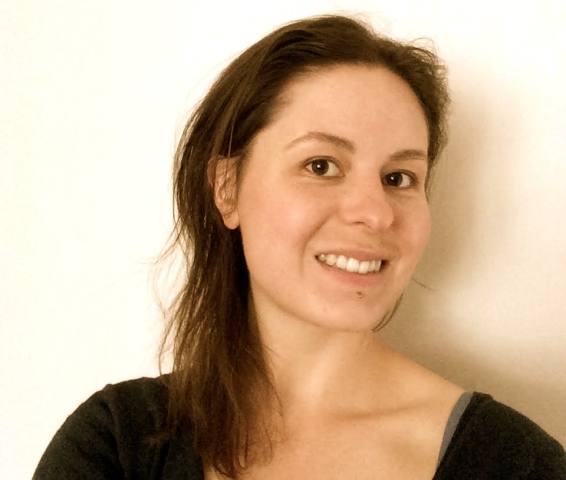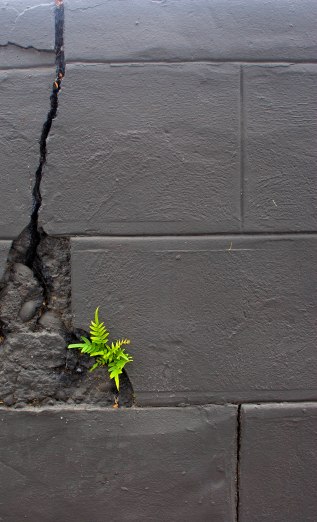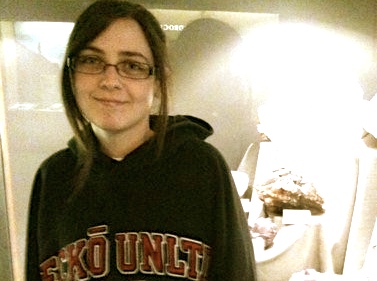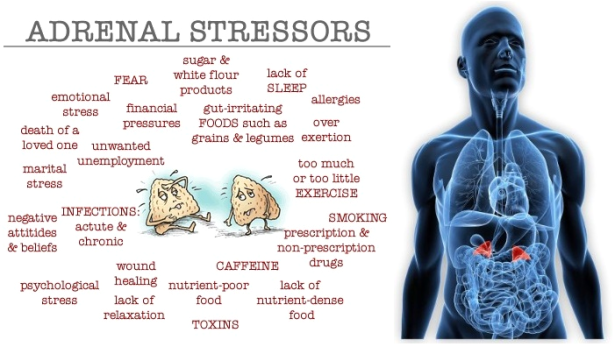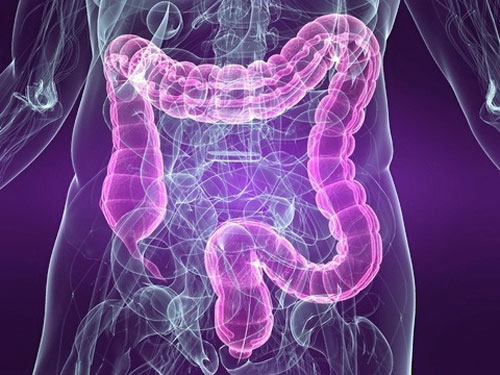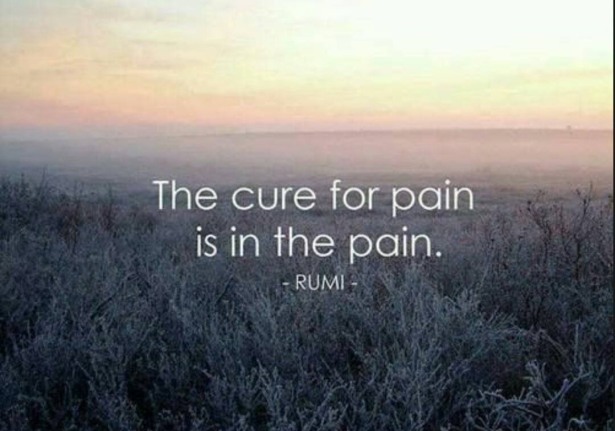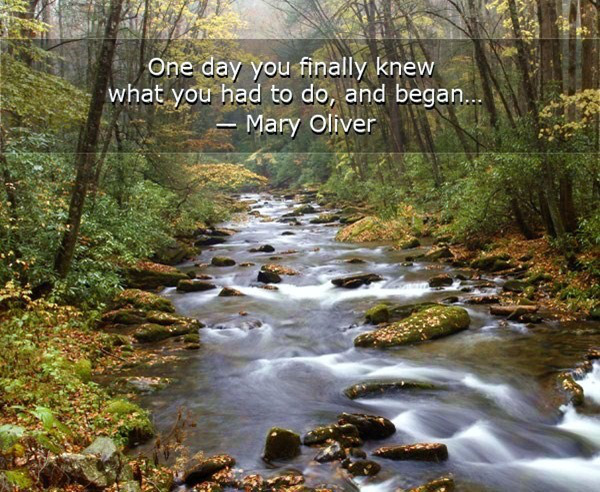
I haven’t posted for a while because I’ve been feeling pretty good (actually compared to the last few years, really very good, with a pain level averaging maybe only a 2/10 for the past few months) and I haven’t wanted to write about or even think much about Interstitial Cystitis. I’ve realized this is a phenomenon in the IC community. When we’re suffering intensely it’s all we can think about and thoughts of our bladders and our pain pervade our every waking moment. What we want most, therefore, is to connect with others going through the same thing, to reach out for moral support and advice and sometimes just to vent. And then when we’re having good days/weeks/months it’s nice to take a break from the conversation and maybe even try to live a normal life that doesn’t include a lot of time and energy directed towards our chronic pain or other symptoms. So here’s my takeaway from this phenomenon:
Thinking about IC leads to more bladder symptoms and more bladder symptoms leads to thinking more about IC.
Maybe this seems obvious, but then again, maybe read that sentence one more time, close your eyes and ponder it for a minute. And if we can accept it’s deep truth, here’s the next logical conclusion: Interstitial Cystitis is a mind-body problem of the highest order. It typifies a mind-body condition, in fact. What’s happening on the mental plane (thoughts and emotions) affects the physical plane, the body (especially the weakest link, whatever that may be, which for us is obviously the bladder). And whatever is happening with the physical body necessarily affects the mind. If you have a broken arm, being stressed doesn’t make the break any worse, and neither does feeling happy make it any better. You still have a broken arm, regardless of your mental state. But with IC, well, we all know how stress can cause a flare, and how feeling relaxed and peaceful can dramatically improve bladder symptoms. This might not sound like news to you, but have you really (and I mean REALLY) taken some time to engage with this idea and see how it fits into your life and your state of health, and how this has changed the course of your condition over time?
Let’s consider health in a general way, first of all.
“Healing is not something which happens and which can then be forgotten. Wholeness is a way of living.” This is from the book Paradox and Healing: Medicine, Mythology, and Transformation, by Dr. Michael Greenwood and Dr. Peter Nunn, two physicians who recognized as early as 1992 the inherent flaw in Western medicine, which wants to cure and fix simply with pills and surgeries, rather than in a holistic way. That quote resonated with me – I highly recommend the book, which I recently stumbled across for 50 cents at a garage sale – and I think it’s got to be understood that IC is a systemic condition and needs to be treated as such. Seeing a urologist who focuses only on the bladder as an isolated organ without considering the whole person is ridiculous when you really think about it. It’s like trying to solve the world’s air pollution problem by reducing carbon emissions in only one tiny African country. It doesn’t make sense to think about the body as disconnected parts that can be isolated and “fixed” independent of every other part. And the very interesting and important thing to note here is that this doesn’t just include the physical body, but also the mind (and even soul). What affects one affects all. IC is a systemic condition. What we eat, how we feel, whether or not we’ve had enough sleep, whether or not we’re on vacation or working on a project deadline, and what the state of our romantic or social life is, will all impact our bladder symptoms. You know this. I know this. Health is a holistic thing, no doubt about it.
When we recognize disease as a balancing factor, as the part of our wholeness which has been denied, we are empowered to seek healing through expanding our awareness and looking for alternate concepts and we can simultaneously abandon the effort to eradicate the illness through conventional treatment. Such a total reversal of our approach to illness amounts to what we call a “transformation” of personal philosophy, and the change in attitude is the key element which activates our intrinsic healing system. – p. 40, Paradox and Healing
How has this affected me? Well, here’s an interesting situation to note: for the past few weeks, maybe a month or so, I’ve been having increased lower back pain, and in the last maybe two weeks, annoying acid reflux, but my bladder pain has gone way down. It’s like my body has decided to swap out the bladder pain for other pain and physical symptoms, just substituting one for the other. Does this resonate with you? Have you ever experienced fewer bladder symptoms at times when you’ve had another health crisis (say, a serious bout of flu, or a badly sprained ankle)? Weird, huh? Dr. John Sarno, a medical specialist dealing in rehabilitation, who was a pioneer in the field of mind-body medicine, has written several books about a condition he termed Tension Myositis Syndrome. My bet is that you and I fit the bill pretty well for this condition, which essentially suggests that your ability to recognize, accept, process, and express your emotions is pretty stunted, and so your psyche deals with this by manifesting the pent-up mental energy in a physical manner – any physical manner, and the symptoms can change. (Common ones manifest as Irritable Bowel Syndrome, Fibromyalgia, and IC and other conditions that have no clear cause or cure). So, if you’re resentful towards your boss but you don’t want to deal with trying to communicate your frustration, you perhaps get intense lower back pain. Interesting, too, that self-help author Louise Hay suggests, in her book You Can Heal Your Life, that each organ and body part, when causing problems, gives a clear message of some kind, and in the case of the bladder, it’s that we’re “pissed off.” Pretty clever, our mind-bodies, aren’t they?
So what can you do, today, to start to move towards freedom from this vicious cycle of thoughts = symptoms = thoughts = symptoms?
First, I would recommend doing a bit of research on the mind-body connection so you really understand what’s going on for you. Get your hands on Dr. Sarno’s books, particularly The MindBody Prescription, as well as Gabor Maté’s When the Body Says No, and after giving those a read, listen to Abigail Steidly’s podcasts. She had IC and she’s in remission now, so she’s obviously done something right. The basic idea with these resources is to start to make yourself understand that while IC causes real symptoms, those symptoms are caused in large part by our minds, which can be worked on to stop the vicious cycle of stress and anxiety related to your physical symptoms. Change your thoughts, change your life.
Second – and THIS IS THE MOST IMPORTANT – I would suggest taking some significant steps in your life to lower your stress levels, both acute and chronic, and get your mind to a state of regular calm. This might mean leaving a job that’s got you at your wit’s end, or even ending a relationship that has become toxic. It also might mean recognizing where you need to say no (to social engagements, extra work projects, volunteer events, or household chores that could be delegated). Maybe it means taking a vacation or staycation to re-set your soul to a more peaceful place. It definitely means a regular mindfulness meditation practice (which could just be a matter of remembering to breath deeply a couple of times per day, to begin with). Basically just figure out where in your life you’re feeling a lot of anxiety and actively look for ways to mitigate this. Maybe start journalling to note what state of mind you’re in on a daily basis, and see if you can start to recalibrate your general mental state towards being more positive and peaceful.
Third is to start taking great care of your body, which directly affects your mind, which in turn affects your body… you get the point. Sleep is essential. Not just enough, but at the right hours. I’ve learned in my psychology studies that getting to sleep before 10:30 pm can afford the most restorative sleep because it’s in the earlier hours that our cells are most efficiently repaired. It also allows for more time in REM sleep later in the night, which is ultimately the most important stage of sleep. If you wake up to an alarm and struggle to get out of bed, if you need a nap during the day, or coffee to stay awake, you’re not getting enough or good enough sleep. Next is exercise. You already know, so I won’t go on about why it’s so important to health, but let me just say from experience that getting out into the woods for a hike at least once a week, and doing yoga at least twice a week, has made a world of difference for me, both in keeping me grounded and lowering my stress levels (and also helping me to sleep more deeply). And the third pillar in the foundation of health of course is diet…
So fourth, of course, is consider carefully, BUT DON’T OBSESS about what you eat. Obsessing about your diet leads to more stress. I really believe a big reason my bladder has calmed down a lot in the last few months is because I (mostly) avoid trigger foods, like alcohol and caffeine, vinegar, tomatoes, spicy foods, etc. but I don’t totally cut them out or go around in a constant state of vigilance and obsess about what I’m eating and not eating. Here’s why: last summer I fasted on an elimination diet for 10 days, eating NOTHING BUT lettuce and steel cut oats, and my pain remained at an all-time high. I think the reason is that being so stressed out by my food obsession, and feeling so hungry and deprived and sorry for myself only increased my stress, and it’s STRESS, more than diet, that I truly believe is the problem with the IC bladder. Sure, we almost all have trigger foods, and I’m in no way saying diet isn’t important, but it’s so much less important to avoid bad foods as it is to eat the RIGHT STUFF to improve health. Eating alkaline and getting the proper nutrients is the foundation of health, regardless of whether you’re near death and need to make a change, or in the peak of health and want to stay there.
Fifth, and finally, I would suggest you do some soul-searching, to get at any underlying issues that may be causing some blockage in your mindbodysoul. I know it might sound corny, but I really believe IC (and actually all disease) is a spiritual issue. I believe our physical bodies are a physical manifestation of our hearts, minds, and souls, and if we’re suffering with a chronic condition, we’re suffering on all these levels. (I saw an acupuncturist last autumn who said I need to heal my heart. She hardly knows me but could see right through to the core of my spiritual issue.) See a therapist, do some journalling, talk to a close friend, go on a vision quest, or just take an afternoon to sit quietly and contemplate where you’re at in your life and what might be causing any anxiety or unrest or even total existential angst. I really believe our bladders are like the tip of the iceberg, and that if we go deep into ourselves we will find that our bodies as a whole are unwell, and more than that, our hearts, minds, and souls are also in pain. If we can address our issues on all these planes we will inevitably come to a state of total wellness, because of course “healthy” is synonymous with being “whole.”
I am currently seeing a therapist who is helping me take great strides towards recognizing areas of my life and of myself that are causing me grief, and I believe in dealing with my emotions, I am helping myself to get out of pain in every sense of the word. It’s not easy, and I’m sure I will backtrack at some point, but I’m also confident I’m heading in the right direction. I hope you can get to the same place on your journey, and I wish you well.
